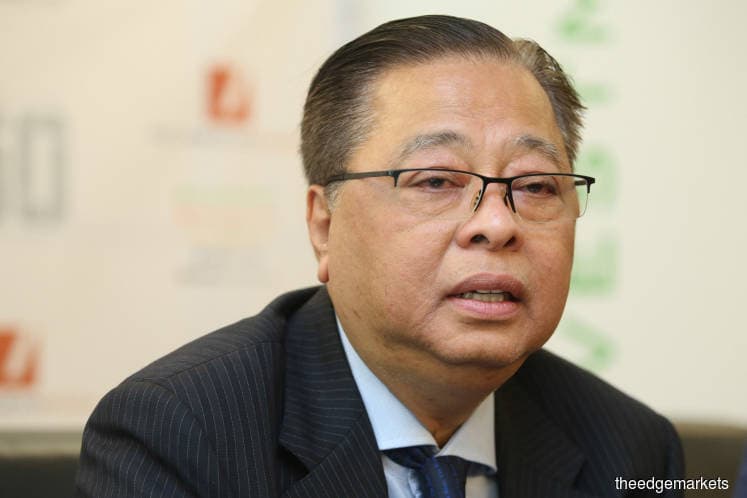
This article first appeared in The Edge Malaysia Weekly on May 4, 2020 - May 10, 2020
THIS is not about whether Malaysia should allow the Rohingya to stay or turn them away. A lot has been said about the issue and the debate is still raging.
We are asking why this upsurge of anti-Rohingya sentiment has suddenly surfaced amid the Covid-19 crisis. Even the authorities, including Senior Minister (Security Cluster) Datuk Seri Ismail Yaakob, are perplexed at the tide of negative sentiment against the community. After all, the minister said, the issue of Rohingya seeking refuge in Malaysia is not something new.
There are videos, audio clips and articles inciting anger against the Rohingya community floating about in the social media space which, said Ismail, the police are aware of and are investigating.
As Ismail pointed out, only the authorities can determine whether the materials are authentic. So, he wants Malaysians to remain calm and give the police the space to investigate.
However, judging from comments on social media, a substantial number of Malaysians — in particular, Malays — are apparently taken up by the anti-Rohingya rhetoric, including what Rohingya community leaders have said was fake news.
Just who are behind the anti-Rohingya materials? Why are they spreading such news, especially now? Who is to gain from such a campaign? Is the campaign coordinated? Is it a campaign in the first place? These are all big questions, the answers to which we do not know yet.
What we do know is that although there are many Malaysians who are sympathetic to the plight of the Rohingya, an equally large number are taken up by the anti-Rohingya rhetoric.
And they are so angry they are spreading hate speech and xenophobia. Some Rohingya activists claim they have been threatened with death and rape. A video of a Rohingya man being verbally abused and bullied by a Malay has gone viral. Only the authorities can tell whether the video is genuine.
So, why have many, Muslim Malays in particular, allowed themselves to become so incensed that they are venting their anger on fellow Muslims?
Obviously, some have had bad experiences with members of the Rohingya community and what they have picked up on social media has only infuriated them further. Their comments could not be more specific.
Granted, there are members of the community who seem to forget their suffering in Rakhine state in Myanmar once they are safe in Malaysia. But isn’t this a case of blaming the entire community because of the behaviour of a few rotten apples?
Likewise, says Ilham Centre CEO Azlan Zainal, not all Malaysians are launching attacks on Rohingya as the majority of Malaysians are not xenophobic. Here, Azlan, whose political views I often quote, is talking in his capacity as a volunteer with a local group involved in humanitarian aid for refugees.
“Many are feeling the pressure of the Movement Control Order — maybe that is one reason for the anger. The number of divorce and domestic violence cases is also high during this period,” says Azlan.
A veteran journalist who has covered the Rohingnya issue extensively says, “I can only think the ordinary rakyat can easily be inflamed when they are forced to stay home, risk losing their jobs and their money woes are mounting.”
The anger, he says, will be more profound in areas with a high density of Rohingya living among the local population and government aid is limited and slow to reach them. “This is when they will be most vulnerable and lash out at anything or anyone perceived to be taking advantage of their hospitality. And the largely Malay anger against the Rohingya is made worse by the absence of influential leaders coming out to appeal for calm and common sense to prevail.”
According to Azlan, the latest outburst occurred after a boat carrying some 200 Rohingya refugees was detained in Langkawi. It is believed a human trafficking syndicate was involved. A few days later, the authorities turned away another boat carrying Rohingya.
Soon afterwards, several postings appeared on Facebook defending the action taken by the authorities, which some international human rights bodies criticised.
But things got worse when a letter allegedly written by a leader of the Rohingya community in Malaysia went viral. The letter contained a demand for equal rights and a range of other demands. It also called Malays stupid.
The Rohingya here dismissed the letter as fake and some even distanced themselves from the writer, claiming he is just an individual and not the community leader.
Which brings us to lawyer Khairul Azman Aziz, who is infamous for his stance on Chinese New Year decorations put up in a school in Puchong early this year. He has also applied to the courts to determine whether vernacular schools are unconstitutional. And he was also the lawyer for the two youth detained in connection with a theft and brawl at Kuala Lumpur’s Low Yat Plaza in 2015.
Khairul, who is vice-president of Parti Bumiputera Perkasa Malaysia (Putra), was charged in February with inciting Malays against the Chinese and Indians via a Facebook post. He pleaded not guilty.
Anyway, he has now allegedly come up with a list of so-called “25 demands of the Malay community” to be presented to the prime minister. The subject matter is all about Malay rights and Islam.
The message, titled “It’s the turn of the Malays to make demands”, is already making the rounds, especially via WhatsApp. Although the authenticity of the message cannot be ascertained, it is nevertheless divisive. The Rohingya bashing needs to be contained before it gets out of hand.
Save by subscribing to us for your print and/or digital copy.
P/S: The Edge is also available on Apple's AppStore and Androids' Google Play.